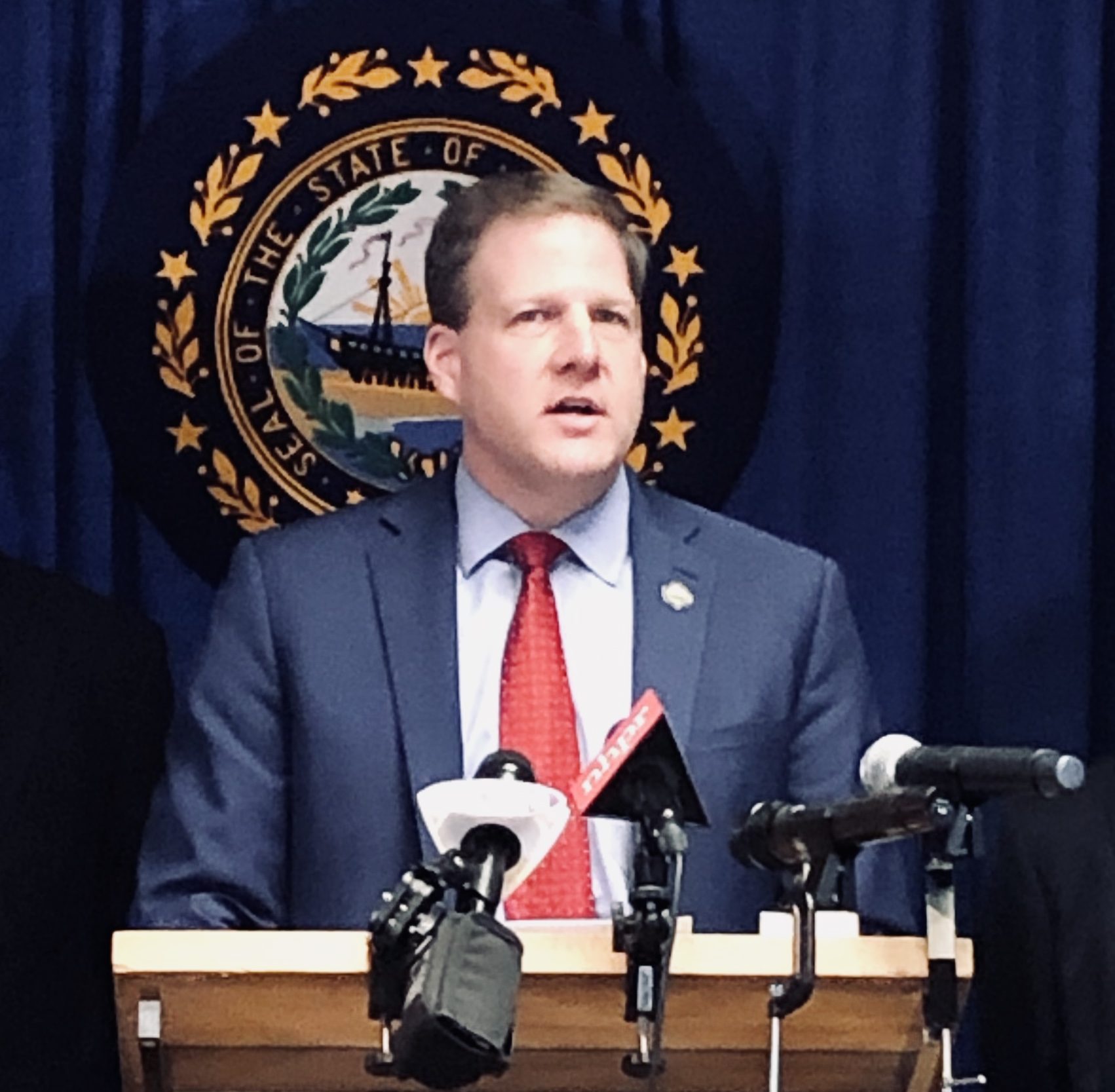Gov. Chris Sununu says he’s not ready to follow the lead of other GOP governors and end the extra $300 in weekly COVID-19 “bonus” unemployment payments, even as Granite State businesses beg for workers.
Last week, Arkansas Gov. Asa Hutchinson announced his state would stop the federal payments in June, as did South Carolina Gov. Henry McMaster. GOP Govs. Doug Doucey (AZ) and Eric Holcomb (IN) are reportedly considering the same. And Montana’s Gov. Greg Gianforte has taken the idea a step further, announcing plans to pay one-time $1,200 return-to-work payments instead of what he called the “no-work bonuses” from the federal government.
“The biggest threat to our economy today isn’t the virus—it’s a severe labor shortage felt in nearly every Montana industry,” Gianforte said. “Incentives matter and the vast expansion of unemployment benefits is now doing more harm than good. This week, we took action.”
Gianforte’s announcement took Montana out of the Mixed Earner Unemployment Compensation and Pandemic Unemployment Assistance federal assistance programs. Workers must stay on the job for a month to receive the $1,200 benefit.
Across the nation, employers are expressing frustration over the inability to find workers, even as the Biden administration pushes to spend additional trillions to “create jobs.” According to the U.S. Bureau of Labor Statistics, there were more job openings this February than a year earlier — before the pandemic struck.
In Montana, unemployment is down to 3.8 percent. But in New Hampshire, it’s even lower — 3.0 percent.
“Unemployment benefits are more generous right now . . . and you also have expanded eligibility,” Richard Lavers, deputy commissioner at the state Department of Employment Security, told the New Hampshire Bulletin. “But that’s not sustainable, and it’s not good. I’m not doing the individual any favors by allowing them to easily continue to collect long-term unemployment. Not good for the individual or the economy.”
Lavers reports eight job fairs held in 2021 to fill 16,500 jobs netted just 600 attendees.
So, is it time to stop paying workers to stay home and start paying them to find a job? “Not at this time,” Sununu told NHJournal during the latest COVID-19 press conference.
“There’s no doubt the very heavy unemployment benefits specifically coming out of the federal government create a challenge in terms of trying to incentivize folks to get back to work,” Sununu said. “But right now, those benefits also provide a needed resource for individuals who just can’t get back to work for a variety of reasons. So at least in the short term, we’re not looking at discontinuing them.”
Another reason not to discontinue them, Sununu added, is that Granite Staters have largely gone back to work. The state’s unemployment rate is half the national average (6 percent) and far below blue states like New York (8.5 percent), Connecticut, and California (both at 8.3 percent).
“If we had a high number of individuals on unemployment, that would potentially be a different story, but we have one of the lowest unemployment rates in the country which means one of the smallest number of people taking advantage of the unemployment system, which is great,” Sununu said.
“It means a lot of people who want to work are back to work.”
Are New Hampshire businesses ready to see federal unemployment dollars turned into back-to-work bounties?
Nancy Kyle, president and CEO of the New Hampshire Retail Association wasn’t prepared to go that far, but she did thank Sununu for taking a key first step.
“The single biggest problem for businesses right now is getting help. With such low unemployment rates, plus the extra stimulus money, it is extremely difficult to get workers,” Kyle told NHJournal. “Thank goodness Governor Sununu recently reinstated the requirement that you have to be looking for work to get unemployment. Anything that could encourage people to work may help.
Tom Boucher, owner and CEO of Great NH Restaurants, is intrigued by the idea of bonus payments, but agrees with Sununu that New Hampshire’s problem is the tight labor supply more than negative incentives.
“With New Hampshire’s unemployment rate so low, I think the hiring crisis is more due to a revving up, red-hot economy not having enough people to fill positions in all industries,” Boucher said. If the state did follow Montana’s lead, Boucher added, the program should be “tiered.”
“For instance, we pay new kitchen employees $200 after three months, $300 after six months, and $500 after one year. We want long-term employees and we are confident if they stay with us for a year, they will be with us for a long time,” Boucher said.
Meanwhile, Sen. Ben Sasse (R-Ne.) is filing the National Signing Bonus Act, which would give people a bonus equal to 101 percent of two months of federal unemployment benefits if they get a job by July 4.
Individuals who get a job by July 4 would get a bonus equal to “101 percent” of two months of the federal unemployment benefits.
“The emergency [unemployment insurance] program is now penalizing people for going back to work. Now, as millions of Americans are vaccinated each day, we’ve got crummy job numbers,” Sasse said. “We’ve got to get America and Americans up and running.”


